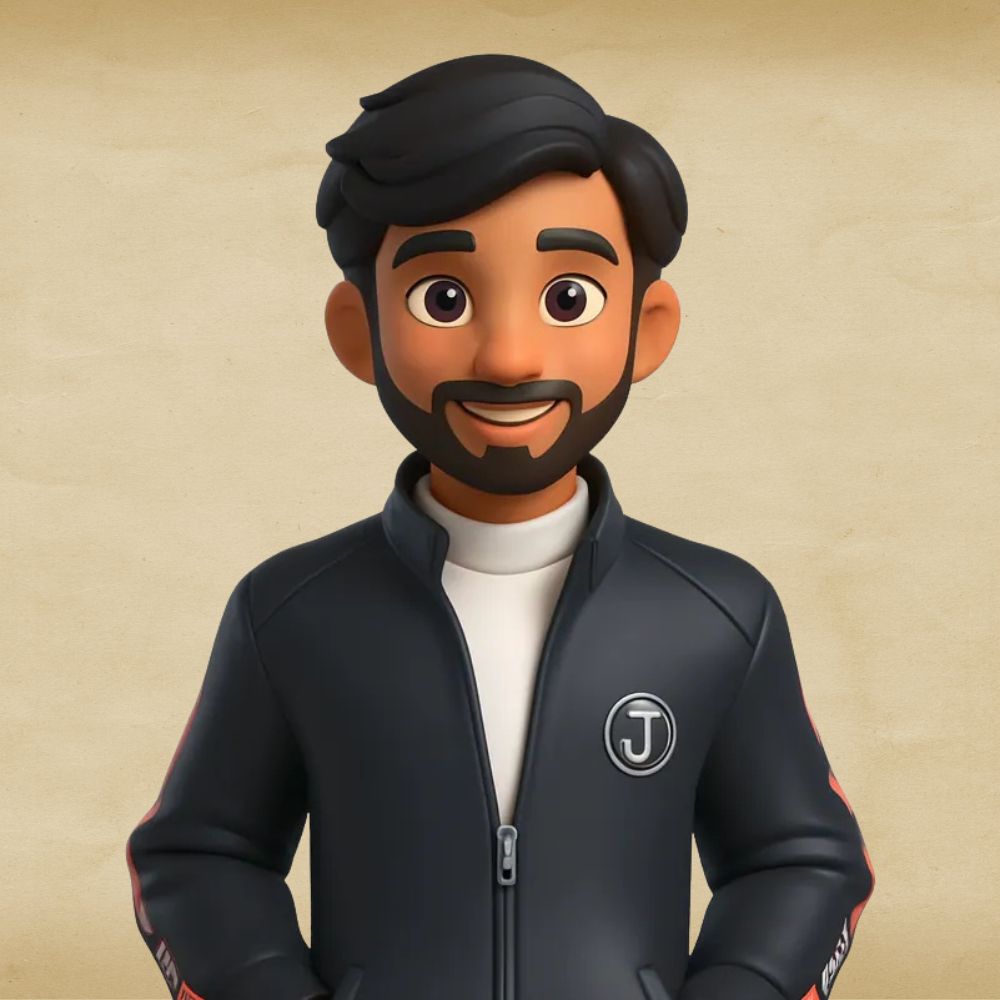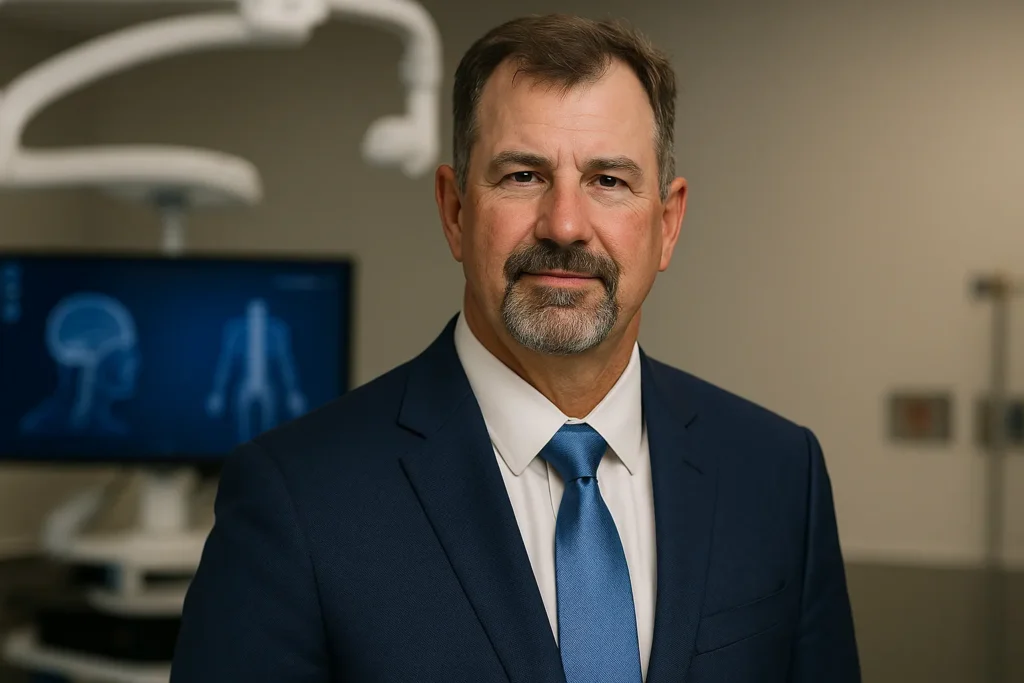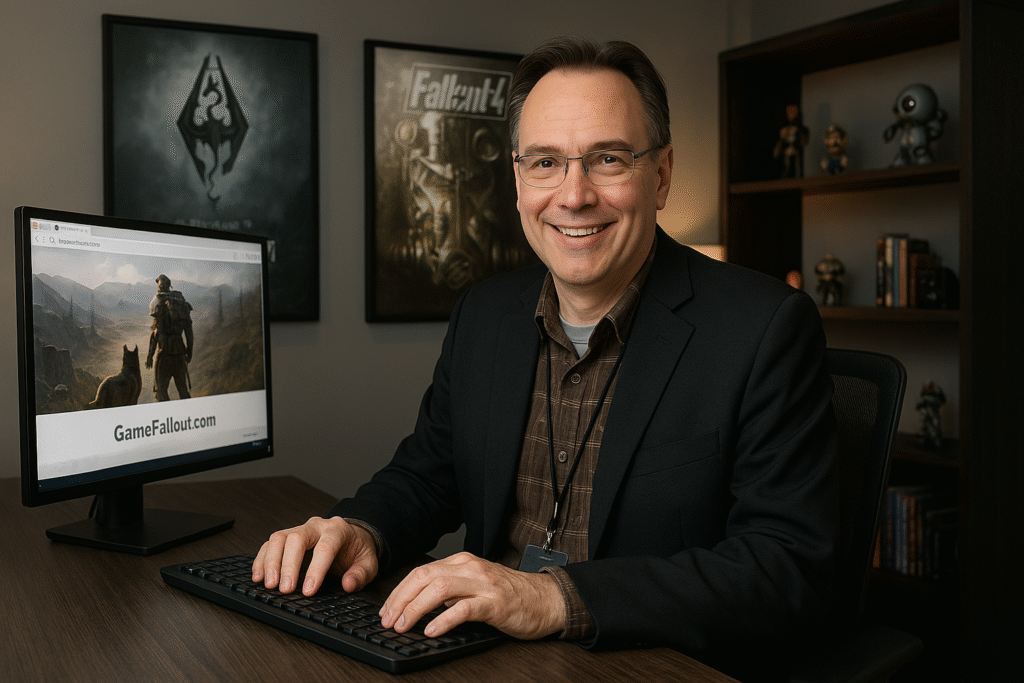When you hear the name Steven Cobery, you might be wondering, “Who is this person, and why do people search for him so much?” Here’s the thing: Dr. Steven Cobery isn’t just another doctor on a hospital roster. He’s a board certified neurosurgeon with a fascinating life story that blends engineering, military service, and medicine.
From working on submarines in the U.S. Navy to performing complex spine surgery in Fall River, Massachusetts, Dr. Steven Cobery has walked a path that very few people even imagine. The best part is—his journey isn’t just about medical titles or degrees; it’s about dedication, service, and coming back home to make a difference in the community where he grew up.
In this guide, let’s dive into the full picture of Steven Cobery MD—his early life, education, career shifts, military service, medical specialties, patient reviews, and what makes him stand out as a trusted neurosurgeon in today’s world.
Snippet-Ready Definition:
Steven Cobery is a board certified neurosurgeon from Fall River, MA, known for his expertise in spine and trauma surgery. A Navy veteran, he blends engineering, military service, and medicine to deliver compassionate care.
Early Life & Education
Every story has a beginning, and for Steven Thomas Cobery, that beginning was in Fall River, Massachusetts. Growing up in this historic New England town, he developed a love for science and problem-solving early on.
Unlike many kids who grow up dreaming of being doctors, Steven’s first path wasn’t medicine. Instead, he was drawn to engineering. After finishing high school, he headed to Worcester Polytechnic Institute, where he studied nuclear engineering. It sounds worlds apart from brain and spine surgery, right? But that engineering foundation would later give him a unique way of approaching medical challenges.
Here’s the thing: understanding systems, calculations, and the precision of engineering gave him a mindset that later made him stand out in neurosurgery. He wasn’t just learning how to perform surgeries—he was thinking about them like an engineer solving real-world problems.
From Engineering to Medicine
So how did an engineer become a neurosurgeon? That’s where Steven Cobery’s biography and career path take a fascinating turn.
While studying engineering, he realized something was missing. Working with machines was fulfilling, but he wanted to make a direct difference in people’s lives. That inner push led him to enroll in Brown University’s Alpert Medical School, where he began his journey into medicine.
At Brown, he discovered his passion for neurosurgery—a field that combines intense problem-solving with delicate, life-saving procedures. His training continued with a neurosurgery residency at Rhode Island Hospital, one of the region’s most respected medical centers.
Think about it: from nuclear equations to the complexities of the human brain and spine, that’s a leap most people wouldn’t dare to take. But for Dr. Steven Cobery, it was exactly the challenge he was looking for.
Military Service & Trauma Surgery
Before returning to civilian practice, Dr. Steven T. Cobery MD served his country in a way that shaped both his career and his character.
He joined the U.S. Navy, where he worked as a submarine officer before stepping fully into medicine. Eventually, his path as a military neurosurgeon took him to Afghanistan, where he treated trauma cases under the toughest conditions imaginable.
Now, imagine being in a war zone and having to perform emergency trauma surgery on soldiers and civilians. There’s no room for error. Every second matters. That’s exactly the kind of pressure Dr. Steven Cobery faced—and excelled in.
This military background didn’t just add to his resume. It gave him a sense of discipline, resilience, and quick decision-making that he still carries into his medical practice today. Many of his patients in Fall River might never know the depth of that experience, but it’s what makes him exceptionally skilled at handling emergencies and complex cases.
Professional Practice & Specialties
Once back in the United States, Dr. Steven Cobery MD focused his career on neurosurgery. Over the years, he’s developed expertise in:
- Spine surgery (including complex spinal reconstructions)
- Trauma surgery (handling critical, high-risk cases)
- Degenerative spine disease (helping patients regain mobility and quality of life)
- Critical care neurosurgery
On top of that, he uses image guided surgery and advanced surgical navigation systems to ensure precision during operations. Think of it like this: instead of relying only on human sight and touch, he integrates cutting-edge tech to make surgeries safer and more effective.
He is also a board certified neurosurgeon, which means he has passed the toughest exams and training requirements set by the American Board of Neurological Surgery.
Today, you’ll find him practicing with Southcoast Health at Charlton Memorial Hospital and other facilities in the Fall River area. For patients, that means access to top-level neurosurgical care close to home.
Return to Fall River & Community Impact
Here’s the part that makes his story even more inspiring: after traveling the world and serving in the Navy, Dr. Steven Cobery decided to come back to his hometown of Fall River, MA.
Why? Because he wanted to make a difference where it mattered most—his own community. Instead of chasing only big-city hospitals or research labs, he chose to give people in Fall River access to world-class neurosurgery without having to travel hours away.
There’s even a story where he performed surgery on one of his former grade school teachers—without realizing it until afterward. That kind of “full circle” moment shows how deeply connected he is to his hometown.
This return to Fall River isn’t just about convenience for patients. It’s about building trust, continuity of care, and showing young people from his city that they too can achieve something remarkable.
Reputation, Reviews & Patient Testimonials
When it comes to doctors, reputation matters. And if you look up Steven Cobery reviews, you’ll find plenty of positive feedback.
Patients often highlight things like:
- His ability to explain complex procedures in plain English
- His calm, compassionate bedside manner
- The confidence he gives patients before major surgeries
On Southcoast Health’s patient review system, he’s rated highly, often averaging close to 4.7 out of 5 stars. That doesn’t just reflect surgical skill—it shows he takes time to connect with patients as people, not just cases.
Of course, like any surgeon handling complex spine and brain surgeries, there are challenges and risks (which we’ll talk about soon). But overall, the patient reviews at Southcoast Health suggest a strong, trustworthy reputation.
Unique Perspectives & Expert Insights
Here’s what makes Dr. Steven Thomas Cobery different: his journey isn’t a straight line. He combines three powerful influences—engineering, military service, and medicine—into one career.
- From engineering, he brings analytical problem-solving.
- From the Navy, he brings discipline and decision-making under pressure.
- From medicine, he brings compassion and technical expertise.
This mix makes him not just a good neurosurgeon, but an innovative one. He’s been part of advanced surgical techniques, like 7D surgical navigation (a next-gen imaging system) and other tools that push spine surgery into the future.
That’s why, when people look up Steven Cobery spinal surgery techniques, they’re not just finding a standard list of procedures. They’re finding a doctor who blends technology with human judgment in ways that improve patient outcomes.
Challenges, Risks & Considerations
Now, let’s be real—neurosurgery isn’t easy. And no surgeon can guarantee perfect outcomes every time. Patients often want to know the risks.
Some of the common challenges in neurosurgery include:
- High-risk procedures where even a small error can change a patient’s life
- Recovery complications, especially with spine surgery
- Emotional toll on both patients and families
For Dr. Steven Cobery, part of the job is not just performing the surgery but also being honest about the risks. That’s where patient communication and ethics come in. He’s known for explaining procedures in detail so patients and families know what to expect.
This transparency is a big reason why his reputation remains strong—it’s not about painting a perfect picture, but about building realistic trust.
Common Questions About Steven Cobery
People searching for Steven Cobery often have other questions pop up, sometimes even mixing him up with Stephen Colbert, the comedian. Let’s clear some of those up:
- Is Dr. Steven Cobery the same as Steve Cobery?
Yes—“Steve” is just a shortened version of Steven. Both refer to the same neurosurgeon. - Where is Dr. Steven Cobery located?
He practices in Fall River, MA, mainly with Southcoast Health. - What is his specialty?
He’s a neurosurgeon focusing on spine surgery, trauma surgery, and degenerative spine disease. - What do reviews say about him?
Most Steven Cobery reviews are positive, mentioning compassion, clarity, and expertise. - Does he publish research?
Yes, he’s been involved in professional neurosurgical research and advanced surgical methods. - Stephen vs. Steven difference?
This is where confusion happens. Many searches for “Stephen Colbert” (comedian) overlap because of the similarity in names. But Dr. Steven Cobery is a completely different person.
Lessons & Takeaways
If there’s one lesson from Dr. Steven Cobery’s career, it’s that success doesn’t come from just one path. He combined engineering, medicine, and military service to create a career that impacts thousands of lives.
For young professionals or students, his story shows that:
- It’s okay to pivot your career if your passion leads elsewhere.
- Bringing skills from different fields can make you stronger.
- Giving back to your community is just as important as personal achievement.
For patients, the takeaway is that when you look for a neurosurgeon, you want someone who’s not just technically skilled but also understands the human side of medicine. That’s exactly where Dr. Steven Cobery shines.
Comparison Table (Relevant: Engineering vs. Neurosurgery Career Shift)
| Aspect | Engineering Career | Neurosurgery Career |
| Focus | Machines & systems | Human brain & spine |
| Skills Used | Calculations, design, problem-solving | Surgical precision, medical decision-making |
| Impact | Indirect, through technology | Direct, saving lives |
| Environment | Labs, technical facilities | Hospitals, trauma units |
| Legacy | Innovations in tech | Healing patients & community impact |
Bullet List: Steven Cobery’s Key Contributions
- Board Certified Neurosurgeon with Southcoast Health
- Specialized in spine surgery, trauma surgery, and degenerative spine disease
- Former U.S. Navy neurosurgeon with service in Afghanistan
- Pioneer in image-guided and surgical navigation techniques
- Committed to his Fall River community with patient-focused care
Conclusion
So, who is Steven Cobery? He’s more than just a doctor’s name on a hospital list. He’s:
- An engineer turned neurosurgeon
- A military veteran who performed surgery in Afghanistan
- A board certified neurosurgeon trusted by his patients
- A Fall River native who came back to serve his community
When you put all of that together, you get a portrait of a man who’s not only skilled in neurosurgery, spine surgery, and trauma surgery, but also deeply rooted in service, ethics, and innovation.
At the end of the day, the best part is—Dr. Steven Cobery proves that medicine isn’t just about science. It’s about people, stories, and the courage to use your skills where they matter most.
FAQs
Q1. Who is the most popular neurosurgeon?
There isn’t a single “most popular” neurosurgeon, but names like Dr. Ben Carson (retired) and Dr. Sanjay Gupta (CNN medical correspondent) are widely recognized in the public sphere.
Q2. Who is the MIT neurosurgeon who quit?
This refers to Dr. Eben Alexander, a neurosurgeon with ties to Harvard and MIT who later became known for writing about near-death experiences.
Q3. What is the most difficult surgery to perform?
Neurosurgery is among the most complex. Within it, brainstem and spinal cord surgeries are considered the most difficult due to their life-altering risks.
Q4. How rich is the average neurosurgeon?
In the U.S., neurosurgeons earn among the highest salaries in medicine, averaging $600,000–$800,000 annually, depending on experience, specialty, and location.
Q5. What makes Dr. Steven Cobery unique?
He blends engineering knowledge, Navy military service, and advanced neurosurgical expertise, returning to Fall River to provide world-class care for his hometown community.
Disclaimer
This article is for informational purposes only. While we strive for accuracy, medical information can change over time. Please consult directly with healthcare professionals for medical advice or treatment. We do not provide professional medical diagnosis or services.

Hi, I’m Bilal, the founder of outofmagazine.com. I love sharing fresh ideas, stories, and helpful insights on all kinds of topics that spark curiosity. My goal with this site is simple—to create a space where readers can find inspiration, useful tips, and engaging reads on lifestyle, trends, and everything in between.



